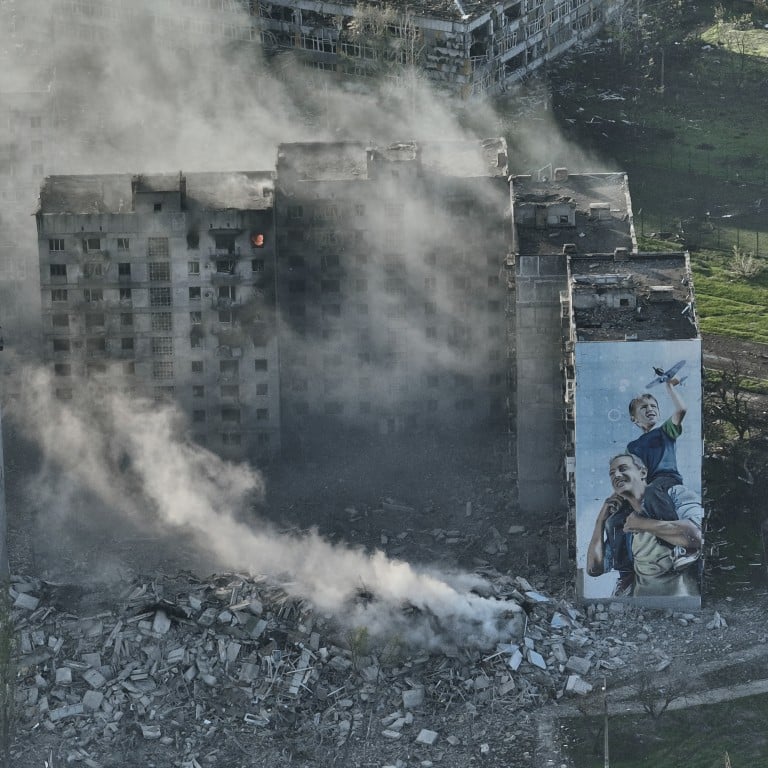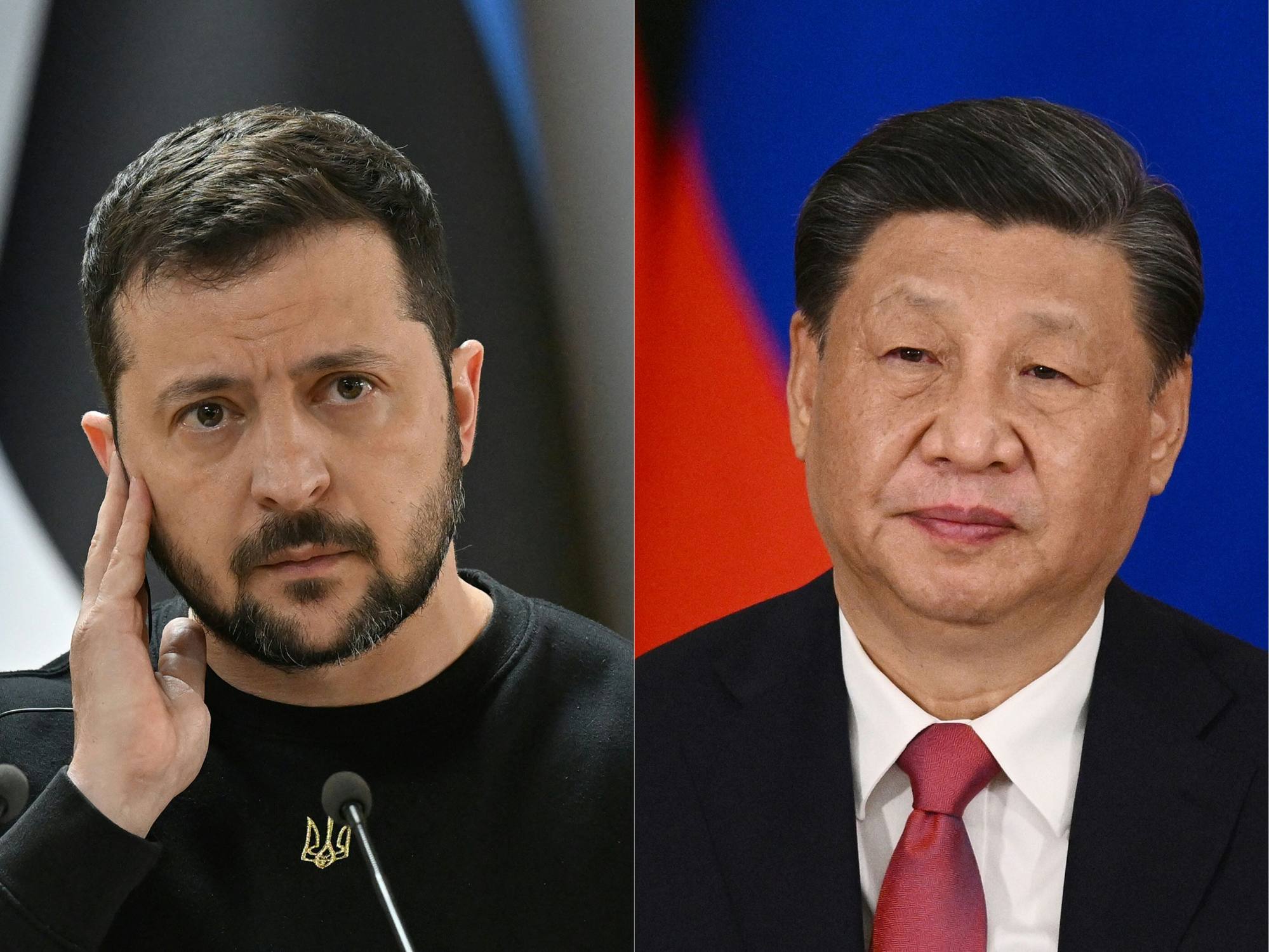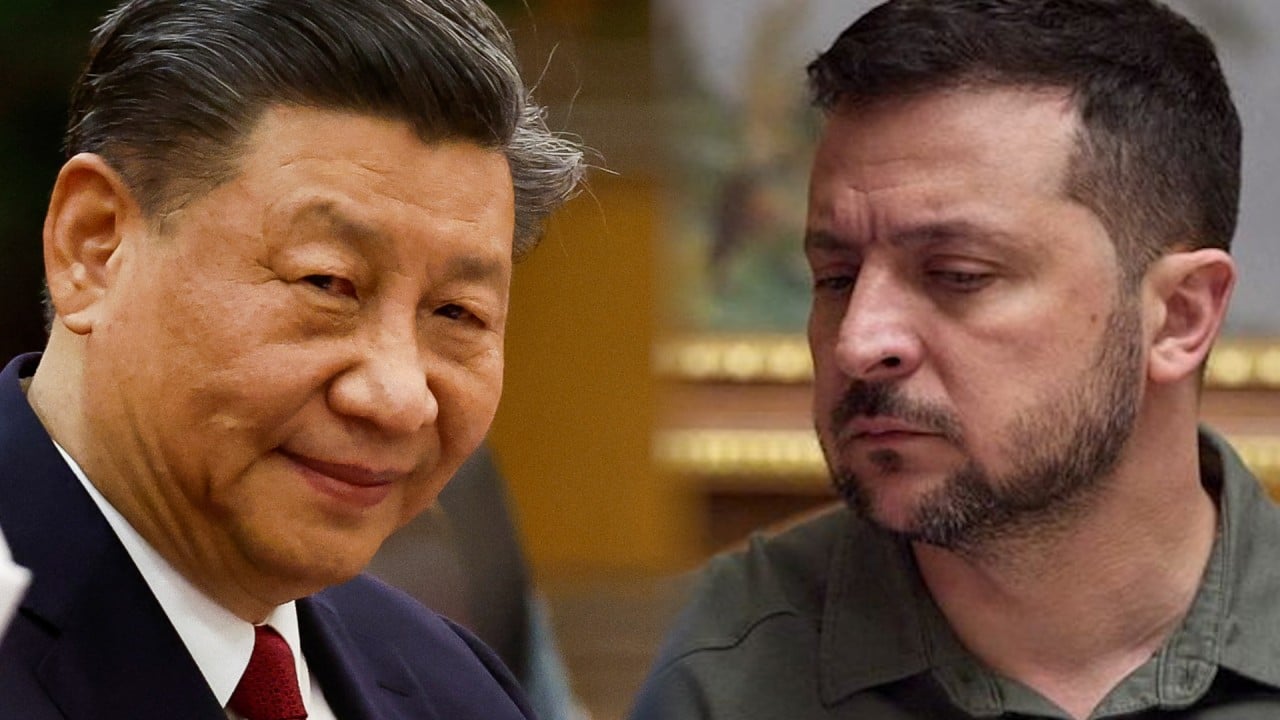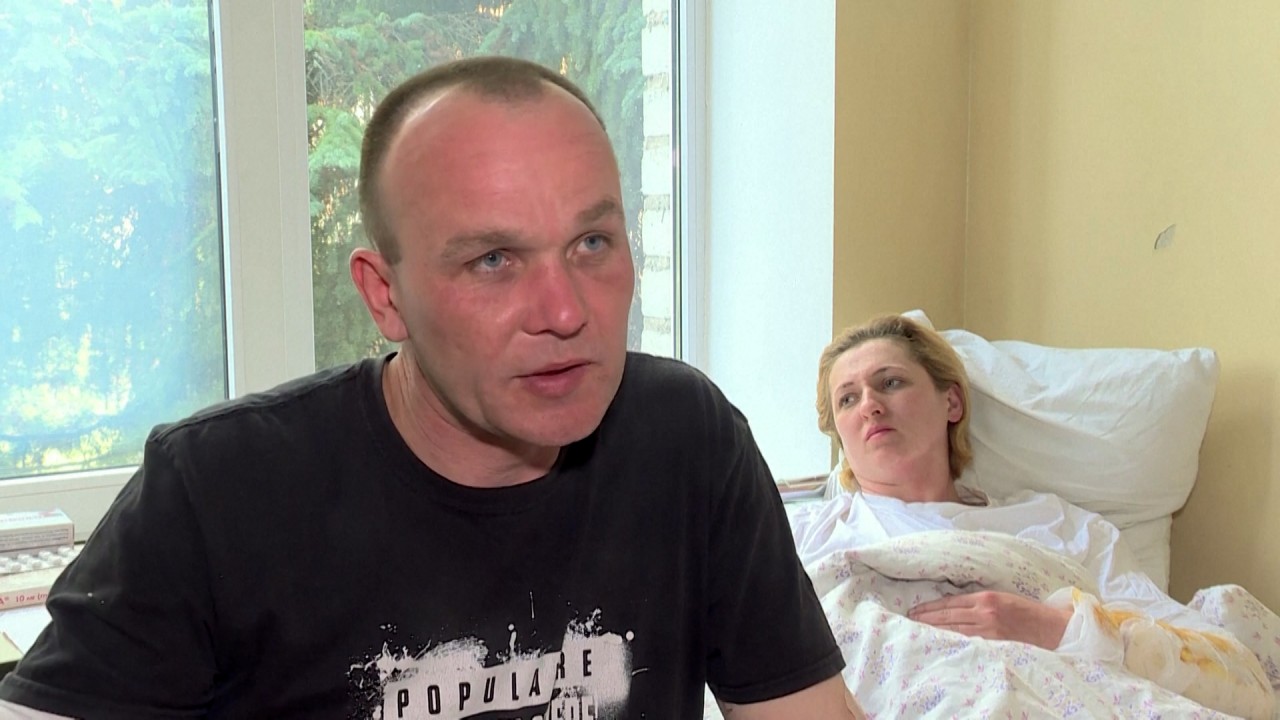
Explainer | China’s Ukraine peace plan: what does it say and what are its chances of success?
- The phone call between presidents Xi Jinping and Volodymyr Zelensky has put Beijing’s efforts to play the peacemaker back in the spotlight
- However, the US and Europe remain sceptical about Beijing’s neutrality and the plan itself has been criticised for a lack of detailed proposals
It released a 12-point plan on February 24 – the first anniversary of Russia’s invasion – after Beijing’s claims to neutrality were repeatedly questioned in the West because of the growing closeness between Moscow and Beijing.
However, both Ukraine and its Western backers have urged China to use its influence over Russia to end the war and it is so far the only country so far to propose a plan that both sides have said they will consider.
Here we look at what it says and weigh up its chances of success.
What does the peace plan propose?
The position paper focuses on finding a “political settlement” through talks, an approach it says is the “one and only way” to stop the fighting.
However it does not offer any timeline or road map for the plan.
It says the sovereignty of all countries should be respected and restates China’s long-held opposition to the use of nuclear weapons, while also calling for an end to “unilateral sanctions” and – in an apparent swipe at Nato – condemning “bloc confrontations” and the “cold-war mentality”.
It calls for nuclear power plants to be safeguarded, echoing warnings from various international agencies and governments.
Days after the plan was published, China donated €200,000 (US$210,000) to the International Atomic Energy Agency to help safeguard Ukraine’s nuclear facilities, some of which have been attacked and occupied by Russian forces.
China’s envoy to EU says relations shouldn’t be tied to Ukraine crisis
Other proposals include a call for all parties to implement an agreement to guarantee Ukrainian grain exports – a deal brokered by Turkey and the United Nations in the hope of mitigating the impact of rising food prices on developing countries – more humanitarian support for civilians and the stabilisation of supply chains.
It also promotes post-conflict reconstruction, and says China “stands ready … to play a constructive role” in this regard.
The full text of the proposal can be read at the bottom of this article.
Can China’s plan work?
The ongoing tensions with the US have fuelled Beijing’s desire to play a constructive role on the world stage and boost its standing as a peacemaker after it successfully brokered a deal between Iran and Saudi Arabia to restore diplomatic relations.
Russian President Vladimir Putin has said the plan could be viable when the West and Ukraine are ready to talk, while Zelensky has said that restoring Ukraine’s borders with Russia are a precondition for any peace talks.
An alternative approach might be a step-by-step one of first seeking common ground with the parties involved.
However, China’s failure to condemn the invasion and growing closeness to Russia has generated intense scepticism in Europe and the US about its neutrality.

The peace plan itself was criticised by some Western leaders for its failure to call for the return of all Ukrainian lands occupied since 2014, including Crimea, and for a lack of detail about what role it plans to play or how it plans to push for a ceasefire.
However China has kept its distance from the conflict and has always maintained that it stands for peace rather than backing Moscow. It has also denied claims from Washington that it is thinking about arming Russia.
Chinese defence minister ‘specifically chose Russia’ for first overseas trip
Meanwhile, Beijing has criticised the United States and Nato for escalating the conflict by sending arms to Ukraine.
What other peace plans have been proposed?
Brazil has put forward its own proposals, asking nations that are not involved in the war, including China and itself, to serve as mediators. Other countries such as Turkey and France are also actively engaged and are talking to both Putin and Zelensky.
Meanwhile, Ukraine’s own 10-point formula – which includes its precondition of a full Russian withdrawal – has been rejected by Moscow.
What happens next after the Xi-Zelensky call?
Beijing says it is planning to send a special envoy to Ukraine “and other countries” to discuss possible solutions to the conflict with all parties involved.
It remains to be seen how far it is willing to get involved as no other details about China’s peace plan were revealed following the phone call.
However, the conversation was broadly welcomed, with the US calling it a “good thing” and the EU saying it was a “long overdue first step” and calling on China to use its influence over Moscow to end the war. Russia reacted by saying it welcomed anything that brought the end of the conflict closer, but it needed to achieve its goals first.
The full text of China’s Position on the Political Settlement of the Ukraine Crisis is included below
1. Respecting the sovereignty of all countries. Universally recognised international law, including the purposes and principles of the United Nations Charter, must be strictly observed. The sovereignty, independence and territorial integrity of all countries must be effectively upheld. All countries, big or small, strong or weak, rich or poor, are equal members of the international community. All parties should jointly uphold the basic norms governing international relations and defend international fairness and justice. Equal and uniform application of international law should be promoted, while double standards must be rejected.
2. Abandoning the Cold War mentality. The security of a country should not be pursued at the expense of others. The security of a region should not be achieved by strengthening or expanding military blocs. The legitimate security interests and concerns of all countries must be taken seriously and addressed properly. There is no simple solution to a complex issue. All parties should, following the vision of common, comprehensive, cooperative and sustainable security and bearing in mind the long-term peace and stability of the world, help forge a balanced, effective and sustainable European security architecture. All parties should oppose the pursuit of one’s own security at the cost of others’ security, prevent bloc confrontation, and work together for peace and stability on the Eurasian Continent.
3. Ceasing hostilities. Conflict and war benefit no one. All parties must stay rational and exercise restraint, avoid fanning the flames and aggravating tensions, and prevent the crisis from deteriorating further or even spiralling out of control. All parties should support Russia and Ukraine in working in the same direction and resuming direct dialogue as quickly as possible, so as to gradually de-escalate the situation and ultimately reach a comprehensive ceasefire.
4. Resuming peace talks. Dialogue and negotiation are the only viable solution to the Ukraine crisis. All efforts conducive to the peaceful settlement of the crisis must be encouraged and supported. The international community should stay committed to the right approach of promoting talks for peace, help parties to the conflict open the door to a political settlement as soon as possible, and create conditions and platforms for the resumption of negotiation. China will continue to play a constructive role in this regard.
5. Resolving the humanitarian crisis. All measures conducive to easing the humanitarian crisis must be encouraged and supported. Humanitarian operations should follow the principles of neutrality and impartiality, and humanitarian issues should not be politicised. The safety of civilians must be effectively protected, and humanitarian corridors should be set up for the evacuation of civilians from conflict zones. Efforts are needed to increase humanitarian assistance to relevant areas, improve humanitarian conditions, and provide rapid, safe and unimpeded humanitarian access, with a view to preventing a humanitarian crisis on a larger scale. The UN should be supported in playing a coordinating role in channelling humanitarian aid to conflict zones.
6. Protecting civilians and prisoners of war (POWs). Parties to the conflict should strictly abide by international humanitarian law, avoid attacking civilians or civilian facilities, protect women, children and other victims of the conflict, and respect the basic rights of POWs. China supports the exchange of POWs between Russia and Ukraine, and calls on all parties to create more favourable conditions for this purpose.
7. Keeping nuclear power plants safe. China opposes armed attacks against nuclear power plants or other peaceful nuclear facilities, and calls on all parties to comply with international law including the Convention on Nuclear Safety (CNS) and resolutely avoid man-made nuclear accidents. China supports the International Atomic Energy Agency (IAEA) in playing a constructive role in promoting the safety and security of peaceful nuclear facilities.
8. Reducing strategic risks. Nuclear weapons must not be used and nuclear wars must not be fought. The threat or use of nuclear weapons should be opposed. Nuclear proliferation must be prevented and nuclear crisis avoided. China opposes the research, development and use of chemical and biological weapons by any country under any circumstances.
9. Facilitating grain exports. All parties need to implement the Black Sea Grain Initiative signed by Russia, Türkiye, Ukraine and the UN fully and effectively in a balanced manner, and support the UN in playing an important role in this regard. The cooperation initiative on global food security proposed by China provides a feasible solution to the global food crisis.
10. Stopping unilateral sanctions. Unilateral sanctions and maximum pressure cannot solve the issue; they only create new problems. China opposes unilateral sanctions unauthorised by the UN Security Council. Relevant countries should stop abusing unilateral sanctions and “long-arm jurisdiction” against other countries, so as to do their share in de-escalating the Ukraine crisis and create conditions for developing countries to grow their economies and better the lives of their people.
11. Keeping industrial and supply chains stable. All parties should earnestly maintain the existing world economic system and oppose using the world economy as a tool or weapon for political purposes. Joint efforts are needed to mitigate the spillovers of the crisis and prevent it from disrupting international cooperation in energy, finance, food trade and transportation and undermining the global economic recovery.
12. Promoting post-conflict reconstruction. The international community needs to take measures to support post-conflict reconstruction in conflict zones. China stands ready to provide assistance and play a constructive role in this endeavour.

 - Kawala Xie.jpg?itok=NogZcyZ-&v=1661304068)

